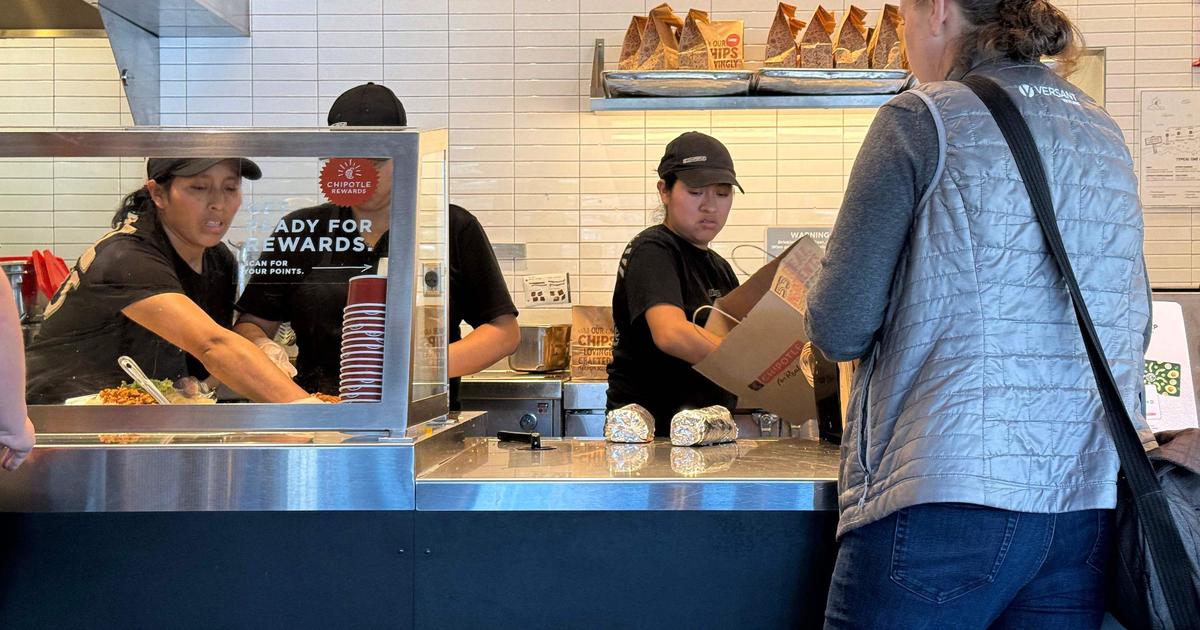The president of the National Commission of Minimum Wages (Conasami), Luis Munguía Corella, (Hermosillo, 1982) has a difficult mission to solve towards the last stretch of this year: in an environment of runaway inflation, which already exceeds 8% In the country, the head of this decentralized body will seek to reach a consensus with the labor and employer sectors to increase the minimum wage next year.
Mexico began 2022 with a 22% increase in this salary compared to the previous year, going from 213.39 to 260.34 pesos a day on the northern border and from 141.70 pesos to 172.87 pesos in the rest of the country, a step in favor of labor rights .
If a new increase is materialized in 2023, it would be the fifth increase since López Obrador came to power, however, the country is still lagging behind with respect to the minimum wages offered by its international parties.
Munguía Corella himself acknowledges that the minimum wage remains one of the lowest in Latin America, however, he also warns that firm steps have been taken since 2019 to close this gap.
The goal of this Administration is that this daily salary reaches at least 260 pesos throughout the country at the end of 2024.
Ask.
Since President López Obrador came to power, one of his main achievements was to raise the minimum wage...
Response.
The minimum wage was very low before 2019 and it was also so low that it was not enough to cover the minimum Welfare basket calculated by Coneval.
In 2019 the minimum wage went from 88 pesos to 102 pesos in almost the entire country.
That year was very important because on the free border of the northern border the minimum wage was doubled (it went from 88 pesos to 176.72) and the answer comes from the tax benefits that were given to companies in the area.
It was an innovative policy, we reduced taxes on companies, but part of this extra profit they had went to wages.
P.
How did the pandemic affect the policy of increases that they had planned in minimum wages?
R.
_
We had planned to make the salary increase gradual, but that it be sustained to avoid any risk of inflation or unemployment, and the other point is to tell the companies the objective that you intend to reach so that you adjust your costs over time and it has been shown in the world that this type of policy has to be done this way.
At first we had planned to increase the first year by 16%, then 20% and then 25% and then go down little by little like a curve.
With the pandemic, we had to review the curve, that is, growth, and we had to talk to the business sector, mainly, which is the one that may have the most problems with increasing the minimum wage because the labor sector obviously wants increase.
There was a strong negotiation and that is why it grew 15% in 2021. That completely changed our trajectory and right now we are in a situation of recovering what was lost, that is why last year the minimum wage was increased more [22% ] to compensate for this change.
Q.
Now, with the Russian offensive in Ukraine, an unprecedented rise in inflation and rising interest rates, how will these factors affect your final assessment of the salary increase for next year?
A.
Since last year we have been calculating how much inflation is going to be, how much we can raise the minimum wage.
The important thing for us is to know how much the minimum wage beats inflation and the rest is not so much our job.
P.
_
And have you already calculated how much the increase in the minimum wage impacts inflation?
A.
Very little.
This year we can see how much it affects the cost for companies, how much it hits the business sector and the impact it has on the business sector is low because still, despite the fact that most workers are between one or two minimum wages, even when When the minimum wage goes up, it does not go up as much for companies, that is, the total labor cost of increasing the minimum wage in Mexico last year was 1.3%.
Although the impact is very low, there is also a psychological part, so that employers do not raise prices if they see the minimum wage rise.
That is what could really affect it, it is where we have to coordinate a lot, the business sector, Banco de México, they are experts in expectations.
Munguía, during the interview at the offices of the Ministry of Labor this week.
Rodrigo Oropeza
Q.
Given this adverse economic environment, is there a margin to increase the minimum wage?
R.
We have a goal of the minimum wage that we want to meet, it is twice the welfare line that the National Council for the Evaluation of Social Development Policy (Coneval) makes, right now it is about 130 pesos a day, that is, twice it would be 260 pesos per day at current prices.
There the decision will be that we are going to have the same two years [in salary increase] or we give more to this year and less to the next.
We believe, from the technical side, that the ideas would be to increase a little less next year and a little more later due to inflation.
Q.
Would you at least expect to reach the minimum increase of 15% that you already had in 2021?
A.
Yes, at least.
Q.
How tense has the lobbying been with business groups this year?
R.
I do not see it as difficult, it is less tense than in 2020. That year was the most critical moment of the negotiations with the companies because we were increasing the minimum wage in the pandemic and there was the negotiation of the Outsourcing or Subcontracting Law, so, as there were several fronts, it was more difficult and finally what we always tell them is that we cannot continue in Mexico with a model that is based on exploitation or that is paid little.
P.
There is this perception among the population that despite this increase in the minimum wage, families are not getting enough for day to day. How much has inflation pulverized the rise in wages?
R.
The increase in the minimum wage is above inflation, that is not in dispute, it rose 22% this year compared to the previous year and inflation is 8%.
The reality is that it does go to the top, there must be more people who do reach it, but there must be many cases that do not, it is obvious that there is social discontent, especially in times of inflation.
Q.
How many people in Mexico are currently earning the minimum wage?
R.
In Mexico, around 19.2 million citizens earn up to a minimum wage, an increase of 6.2% compared to the 14.8 million people who earned that salary in 2017, according to the new methodology that Conasami is putting on the table of the Inegi.
We do not say that we are already well, we have a challenge ahead, the minimum wage still has to be raised more, we have that objective, twice the welfare line is the minimum that a household needs in order not to be in poverty.
Obviously, we do hope that the minimum wage will continue to rise, that in the next administrations it will at least be maintained and that they will try to improve it because the minimum wage in Mexico continues to be one of the lowest in the OECD and in Latin America.
P.
Is there any threat that could prevent reaching this six-year goal of increasing the minimum wage to 260 pesos at the end of the Administration?
R.
Right now, the main threat is inflation and Conasami is tripartite [made up of the government, workers and employers], so our ideal is to achieve this, but it will not always be achieved, another possible threat is that if the The business sector is against it and votes against it, and perhaps someone from the labor sector doesn't want to and votes against it, the initiative would not pass.
We do not have massive power within the council, there the lobbying is mainly with the businessmen.
In addition, everything has been very technical and if we determine that raising the minimum wage to 260 pesos is going to generate other problems that we do not want, such as rising inflation or the dismissal of more workers, then we would not reach the goal because we want the best for the workers. .
P.
Do you consider that the government plan to tackle inflation has achieved this objective?
In particular, what do you think of the controversial gasoline subsidy?
R.
Theoretically, it should help because if gasoline goes up, the prices of all food go up.
Mexico is a country where everything moves in trucks, we don't have a first world rail network, we don't use ships, so the more expensive gasoline is, the more expensive it is to send goods from one part of the country to another.
I know it's controversial because of the car subsidy issue, but [the measure] also has an impact on the price of basic products.
subscribe here
to the
newsletter
of EL PAÍS México and receive all the informative keys of the current affairs of this country









